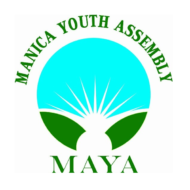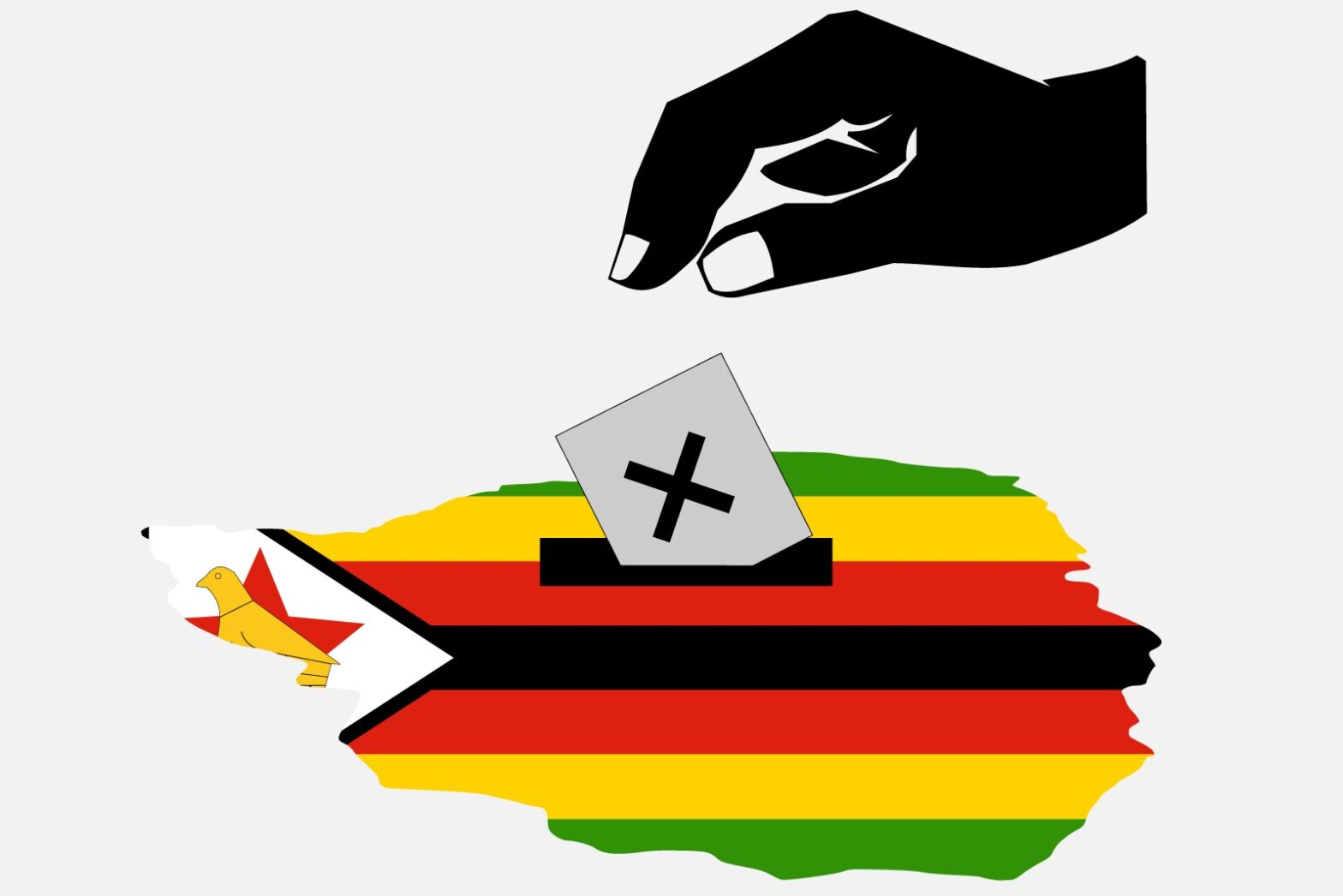By Lorraine Maposa

1.0 Introduction
Young people should not be disengaged from electoral processes. Young people must be engaged in formal electoral processes and have a say in today’s and tomorrow’s elections. Youth should be adequately represented in political institutions, processes, decision-making, and particular elections. They must know their rights and be given the necessary knowledge and capacity in a meaningful way at all levels. Participation of youth in electoral processes is important as it ensures youth’s perspectives are heard, they will be considered as part of the local decision-making promises, helps them to be more active, and improves the livelihood of residents. It is important to note that the constitution of Zimbabwe section 20 provides for an opportunity gap for youth participation in governance and the electoral process. Within this context, this article shall discuss the importance of youth participation in the electoral process.
2.0 Background
According to ZESN (2017), young people in Zimbabwe constitute about 67.7 percent of the total population. Due to this percentage, they are supposed to participate more in the electoral processes because they are the leaders of today and tomorrow. People under the age of 35 are rarely found in formal electoral leadership positions. To respond to the needs of young people, and to guarantee that their basic human rights are recognized and enforced, young people’s active and meaningful participation in their societies and electoral practices and processes is of crucial importance.
According to ZESN (2008), The computer test showed that only 18% of those registered are youths aged between 18-30. In the 2008 elections, the participation of youth was fair. According to the Research and Advocacy Unit’s (RAU) audit report on the 2013 voters’ roll, only 8.87% of youths in the age group 18-19 were registered to vote; 19.55% of those between 20 and 24 and 51.69% of those between 25 and 29. According to the same report, the number of registered voters in the age group 30-34 years exceeded the population in that age group by 6.12%: 106.12% were registered as voters. Based on these figures this shows that youth were not participating that much in elections as few only registered to vote in the 2013 elections. According to Zimbabwe Election Support Network (2018) The number of registrants 18 to 22 increased by 372% and those 23 to 27 increased by 83%.Thus the participation of youth in these elections was very high. This shows that in the 2023 elections, youth participation is going to be high as the statistics are rising.
3.0 Youth Participation defined
According to the constitution of Zimbabwe amendment number 20 of 2013 chapter 4 sec20, it postulates that The state and all institutions and agencies of government at every level must take reasonable measures, including affirmative action programs, to ensure that youths that is to say people between the ages of fifteen and thirty-five. Participation is the active involvement of youth and citizens as a whole in certain activities for example whereby youth participate in electoral processes.
4.0Electoral process defined
According to Enne(2013), the electoral process is a method through which the citizens of the state elect their representatives into different political offices. It includes all the constitutional requirements and conditions for the nomination for the primary and general elections. The electoral process spells out the methods through which the election should be conducted. A body is constituted and charged with the responsibility of organizing, supervising, and conducting elections in various government offices. The process in the electoral system includes the creation of electoral constituencies, the nomination of electoral candidates, registration of votes, campaigning, voting, counting of votes, an announcement of electoral results, and presentation of the election victory certificate.
5.0 Importance of youth participation in electoral processes
5.1 Improves the livelihood of residents
Electoral participation of youth does not only affect the flow of public resources but rather it creates positive feedback on participants and people in the community. Young people’s participation in electoral processes improves the livelihood of community residents. The degree to which residents are satisfied is because of the level of participation that youth do in the electoral process. The United Nations Development Programme (2017) in its “Handbook For electoral management Bodies” acknowledges that youth are key agents in the country, and the potential of young people’s contributions to sustainable human development must not be ignored. Thus it is evidenced that even at the national level youth do bring a change through the electoral process as they take part in them and participate through voting. Hence participation of youth in the electoral process is important as it changes the livelihood of people in the community.
5.2 Increased personal confidence
Decision-makers should know that communication with youths, as well as educating them can impact society more broadly. The interactions that young people have with their parents, teachers, schools, and communities can help draw attention to new issues and helps to build more confidence in them as they will have more knowledge of certain issues in their community and country as a whole such that when they express themselves out there they will be confident enough of what they will be saying. Efforts should be made to make senior political party leadership more open to youth voices. This is essential as it increases personal confidence.
5.3 Leads to community development
Young people in the community should be participative in considering the issues that affect their community. Every individual in the community is integral to the development and process of decision-making. When electoral processes are being conducted young people should be present. Youth should vote for people with leadership skills, people who will be able to develop their communities. Leaders who are leaders in the name should not be voted for as they know nothing and they derail development at the community level as they are those kinds of leaders who will only want to fulfill their interests. Community development makes people network. Youth participation also helps people to organize and set their agendas through voting.
5.4 Their ideas bring democratic values
The inclusion of young people in formal electoral processes is important from the start. Young people’s active contributions can bring democratic values to life, leading to the overturning of authoritarian practices. Through elections, young people can vote and make a change. Democratic ideas can be brought through voting, bringing new leadership brings new things of doing things. Thus youth participation in electoral processes is essential as it brings democratic values.
5.5 They know things that affect other youths
Young people should participate in the electoral process as they know the things that affect other youths. Youth know the things that affect them and when participating in the electoral process they would want to do things that benefit them also, for example, many young people are unemployed and because of this when it is time to participate in the electoral process they will vote for each other.
5.6 Foster community-based leadership
As community members are mobilized to vote, leaders from within the community often emerge, including those interested in seeking office. Communities that vote are more likely to elect representatives that reflect the diversity and interests of their communities. This goes hand in hand with the youth in the society they foster community-based leadership in themselves as they participate in the electoral processes. This is important as young people will gain leadership skills in themselves.
5.7 Creation of Opportunities
Getting involved in voter engagement creates opportunities to expand your presence in the community. The activities that young people will be doing may draw in members of the community who have not used your services in the past and voter engagement events are great places to plug in volunteers. As young people participate in the electoral process it creates opportunities for them to be nominated in being part of the elections. They create opportunities for themselves by voting for people with leadership skills.
5.8 It boosts one’s advocacy
Voters are more likely to advocate for their communities and to participate in other ways, such as contacting an elected official, signing up to be a poll worker, or volunteering for a campaign. Elected officials listen to the people who vote in their community. This means that if young people participate in electoral processes they will be heard and also that they will be able to boost their advocacy as they will be participating in the electoral process. Young people’s participation in the electoral process boosts their advocacy as they always want to vote for leaders with action, leaders who know how to do their work and who had integrity.
6.0 Conclusion
The participation of youth is likely to be high in the 2023 elections as shown by the statistics above. Young people are increasingly participating in the electoral process as evidenced by the participation of youth in the 2018 elections. Youths should participate in political processes as it is essential to community development. Zimbabwe approximately has 67.7% population of young people which means that youths should participate more and have more sits in the parliament because they are the leaders of tomorrow and today. Young people bring new ideas and they are still energetic thus they must participate in the political processes. However, some youth fear violence as some elections are characterized by violence, and some fear being killed or tortured thus elections should be non-violent for young people to participate. Without young people there will be no change because they are the future hence we need young people.

